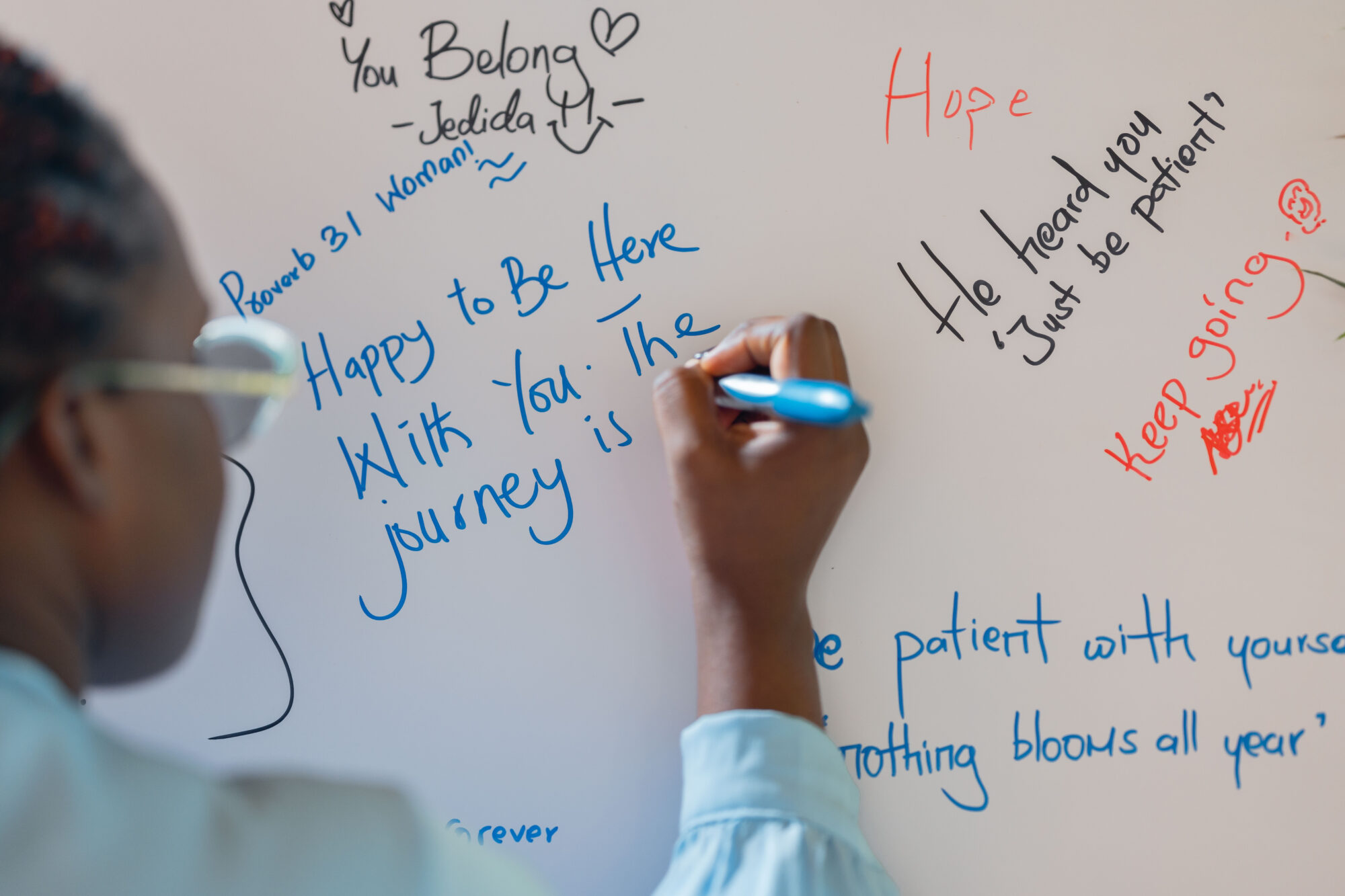Building Belonging: A Journey of Hope, Courage, and Collective Strength
HU’s Mahendra Pandey reflects on the challenges survivors and migrant workers face and the importance of integrating healing and wellbeing into our approaches
HU’s Mahendra Pandey reflects on the challenges survivors and migrant workers face and the importance of integrating healing and wellbeing into our approaches

Migrant workers often experience enormous stress and trauma as a result of exploitative working conditions, isolation, and abuse. These struggles are further compounded by systemic barriers that deny them essential wellbeing support, as well as by the intersectional discrimination that they face, rooted in racism, sexism, and classism. For migrant workers, lack of documentation, language barriers, unaffordable healthcare costs, limited access to services, and the stigma surrounding mental health often means that conditions such as depression and anxiety go untreated. A joint World Health Organization (WHO) and International Labor Organization (ILO) policy brief also underscored that workers in low-paid, insecure jobs, or those who are working in isolation face disproportionate levels of psychosocial risks, including mental health challenges. Shaped by my own experience and through my close interaction with migrant workers from all around the world, I believe that wellbeing is a collective responsibility and a must for a safe and dignified life.
For me, wellbeing is deeply rooted in purpose, community, and impact. It is essential for building a better future for the migrant worker community as it means having their voices heard, lifting each other up, enabling one another to thrive, and fostering solidarity. This also aligns and is recognized by the ILO’s Decent Work Agenda. In my work, I emphasize that all of us – including our partners and supporters – must work together to integrate wellbeing into our approaches. In the past year, we have been able to make significant progress on this integration and in developing our own unique approach to this.
Integrating Wellbeing into our Initiatives
The Global Migrant Workers Network (GMWN) hosted its inaugural Global Migrant Workers Forum in July 2024. GMWN is a grassroots, survivor-led movement that has been supported by Humanity United (HU) since its early days. Healing and wellbeing were central to the forum, with the forum’s theme “I belong here: This is a hopeful place.” Each session was designed to reflect the needs and aspirations of migrant workers and was accompanied by moments of joy and connection through meditation, music, arts and dance.
This mix created a safe space for migrant workers to share their challenges and hardships openly. It is important to recognize that without such safe spaces, migrant workers may not be comfortable to speak. In the case where someone else speaks on their behalf, their realities might not be represented well. This is why a wellbeing-integrated approach is essential – as it makes people feel they belong, that they are safe, and that their voices matter. Only once we fully understand their truths, can we move towards meaningful action to address the issues they face.
Integrating Wellbeing into our Approaches and Beyond
Aligned with HU’s mission of cultivating conditions that transform human exploitation into enduring freedom, it is important that our funding allocations prioritize survivor- and migrant worker-centered wellbeing approaches. Flexible support mechanisms empower survivors to take control of their lives and regain agency. While what we do is critical, it is equally important to consider how we show up in these moments. For example, in my conversations with migrant workers, the themes of hope and healing are central. I have also previously written a blog with HU’s Zoë Newcomb reflecting on the 2025 Global Hearth Summit, where we explored how wellbeing and care can underpin our collective work. The key reminders include gathering with care, power through connection, and change through wellbeing, which are an affirmation that how we show up in the work matters just as much as what we do. But while we do so, it is also important to think about the larger question – are we thinking deeply enough about what it truly means to show up? We recognize the importance of resilience, resistance, and accompaniment to create the conditions for wholeness, integrity, and creativity in long-term social change.
Recognizing the Work Ahead and Committing to It
As I write this blog, I am reminded of our shared responsibilities. Learning from our experiences calls for a strategic shift that acknowledges how strong movements depend on resilient individuals, while fostering hope and optimism for lasting change. The wellbeing of survivors and migrant workers is not a choice, but essential for long-term justice and meaningful societal transformation.